Leadership Profiles
Socially Responsible Investing

Ebony Perkins, Investor and Community Relations Manager
Ebony Perkins is a dedicated, solution-oriented social entrepreneur whose heartbeat is community. She has a demonstrated ability of working with investors and philanthropists to help them make smart and strategic decisions. As Self-Help's Investor & Community Relations Manager, Ebony helps groups and individuals invest funds in a socially responsible financial institution that supports communities of all kinds, especially those underserved by conventional lenders. Before that role, she served as the Donor Relations Manager at Central Carolina Community Foundation where she managed a system to engage and educate over 400 individuals and groups to help them achieve their charitable goals.
Ebony’s commitment to community investing is evident by her service and contributions to Women In Philanthropy, Durham Center for Senior Life, and the University of North Carolina MPA Alumni Board. Ebony was also recognized on the SRI Conference's inaugural 30 Under 30 List.
Ebony holds a Master of Public Administration from the University of North Carolina at Chapel Hill and a Bachelor of Science in Marketing from Claflin University as a summa cum laude graduate. She also has an Executive Certificate in Financial Planning from Duke University.

Nuray Ozbay, Policy and Impact Investment Associate
Nuray Ozbay leads Self Help’s efforts to cultivate mission-supportive depositors and impact investors within and beyond Self-Help’s California footprint. As a global movement and relationship builder, Nuray loves working with change-makers across non-profit, corporate, and public sectors. Her expertise is in intersectional gender equality, global civil society activism, social justice, and ESG investing. Nuray currently serves as a Board Director at the UN Women San Francisco Chapter and a National Expert on Violence Against Women at the European Women’s Lobby, the largest umbrella organization of women’s associations across Europe. Before joining Self-Help, Nuray spent 11 years in the social impact sector as a researcher, consultant, and non-profit leader across Turkey and Europe, working on issues including but not limited to immigration, women’s access to economy, financial literacy & inclusion, entrepreneurship, and care economy.
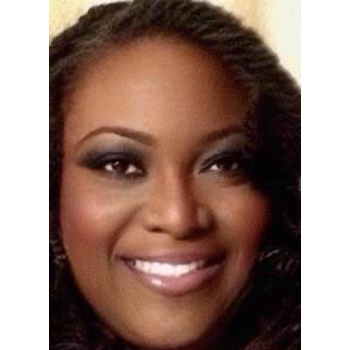
Kimberly Jones, Investment Associate
Kimberly's professional career spans both the nonprofit and community development financial services sectors, with expansive senior leadership roles in arts management; business and resource development; community relations; and corporate philanthropy. Currently, she's Self-Help's Investor Relations Manager, where she helps individuals and institutions align their banking and investments with their mission, vision, and values. Kimberly has held leadership positions that advanced the missions of creative organizations and community development financial institutions seeking to make a difference in communities in their footprint. She has been a founding board member of mission driven organizations that supported the growth and development of young artists, creatives, and professionals in the nonprofit sector.
In 2015, Kimberly was selected to be a PLACES Fellow with The Funders Network, where she explored the role of philanthropy through an equity lens in low to moderate income communities. She has served as a grant/award reviewer for organizations that championed organizational excellence, community development, and environmental sustainability. Kimberly has a BA in Political Science from the University of Minnesota-Morris and an MA in Arts, Entertainment, and Media Management from Columbia College Chicago.
Green Economy; Sustainable Society; Investing for the Environment
Melissa Malkin-Weber, Sustainability Director
Melissa has worked across a broad span of hands-on sustainability practices. At Self-Help Credit Union, she integrates the triple bottom line into the organization’s financial products, operations, and buildings portfolio. She led Self-Help to realize over $1.7 million in net present value from initiatives in this sector, including $180,000 energy savings in our own operations. Melissa previously directed the residential energy efficiency and indoor air quality research program at Advanced Energy and worked in industrial pollution prevention at RTI International. She earned her law degree from University of Michigan, and her Master's from UNC’s School of Public Health.
Shondra Tanner, Mortgage Lending
Shondra Owens Tanner brings her extensive experience and commitment to making mortgage loans for low-wealth families to her position as Self-Help's Director of Mortgage Originations, where she oversees all North Carolina home loan origination and new business development. Shondra's areas of expertise includes buying your first home, mortgage basics (documentation, closing costs, down payments), delinquency and loss mitigation (What is a forbearance and loan modification and what does that do to your credit?)
Home Upgrades That Pay Off: Maximizing Savings Through Energy-efficient Improvements
April is Earth Month and the 22nd is Earth Day, and we are celebrating by sharing sustainable home improvements that can add value to your home while saving you money.
While many people do home renovations to correct structural issues, improve the layout, or make the design more appealing, it can be even more worthwhile to think about changes that you can make to increase your home’s value while making
your home more comfortable and saving you money long-term.
Energy-efficient home upgrades are more than a trend – they're smart investments that benefit your wallet, boost your home’s value, and contribute to a cleaner and healthier environment. In this blog post, we will explore eight different
home upgrades at different price points that each improve your home’s value and save you money. As a bonus, some will even make life easier.
Improve Your Insulation
When your home isn’t properly insulated, you can end up wasting energy trying to regulate the temperature, particularly during hot or cold seasons. When your house can’t retain heat during the winter, heating bills will be higher, and
when it can’t keep cool in the summer, your A/C may have to work overtime.
When you spend time and invest some money upfront, you can reduce your energy bills effectively. Here are some of the best ways to improve insulation in your home:
- Attic or basement – When considering the possibility of adding traditional insulation to your walls, attics and basements (particularly in older homes) are often under-insulated while being easily accessible. Insulation itself
is fairly affordable and works as a one-time upgrade that can easily pay itself off in just a few years while also making you more comfortable.
- Windows – If you have wood-framed windows, check them for damage and fill in any gaps with wood filler or caulking to ensure you aren’t unintentionally letting in hot or cold air. If you have aluminum frames, you can also add draught excluders for better insulation. If your windows are single-paned, consider upgrading to double-paned for better insulation (and noise reduction). If this cost is out of your budget, you can also apply window film to reduce heat in the summer or use white blinds, curtains, or weather stripping to improve insulation.
- Doors – Hot or cool air can also move through door gaps, usually at the bottoms of doors. Consider adding bottom door draught excluders to fill those gaps and improve insulation. You can also opt to switch out exterior doors for ones that have better insulation – some doors even offer energy star certification and federal tax credits.
- Exterior plants – If you live in a hot area, planting trees and other plants strategically around your home to provide shade can reduce the air temperature around your home by a few degrees. Just keep in mind that if you live in a fire-prone area, it is suggested to keep a 5-foot perimeter around your house clear of any plants or vegetation to protect your house in case of a wildfire.
Get Smart With Your Thermostat
For an easy and reasonably affordable upgrade that can maximize your energy savings, consider switching to a smart thermostat. Smart thermostats allow you to set schedules for your heat and/or A/C and give you the option to control the temperature
from your phone. This means that you can manage your energy usage more effectively, allowing you to make sure you’re only using energy when you want/need it. If you forget to turn the heat off before you leave the house – no worries!
Just turn it off from your phone at any time.
Switch to Solar
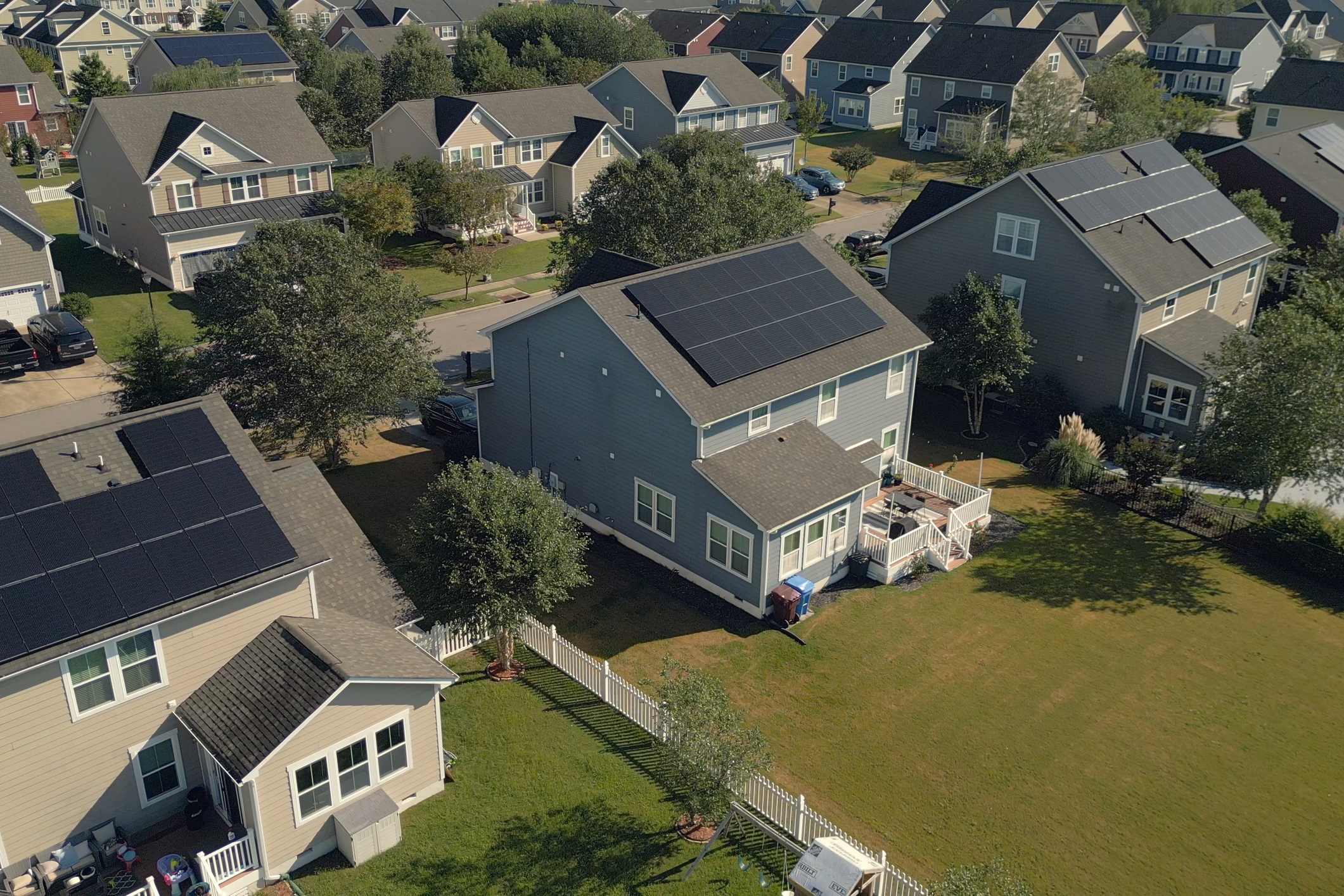
You may have heard this time and time again, but it’s true what they say – solar panels save you money and increase the value of your home substantially.
Installing solar panels is one of the most impactful energy-efficient upgrades you can make to your home. The panels use the power of the sun to generate electricity, providing a clean source of energy that can reduce your electricity bill drastically.
While the exact cost to install and the savings you can expect varies by location, Forbes estimates
that most people make back the cost of installation on energy savings after about 5-10 years, and that you could save $25,500-$33,000 over the lifetime of your solar panel system (assuming energy prices stay the same).
The upfront cost is about $12,000-$30,000 for installation (depending on the size of the system you install), which can make this option more challenging to implement, but many tax breaks and incentives are available and financial institutions
like Self-Help offer solar loans or other green loans to help make energy-efficient upgrades more accessible.
Look for Energy-efficient Appliances
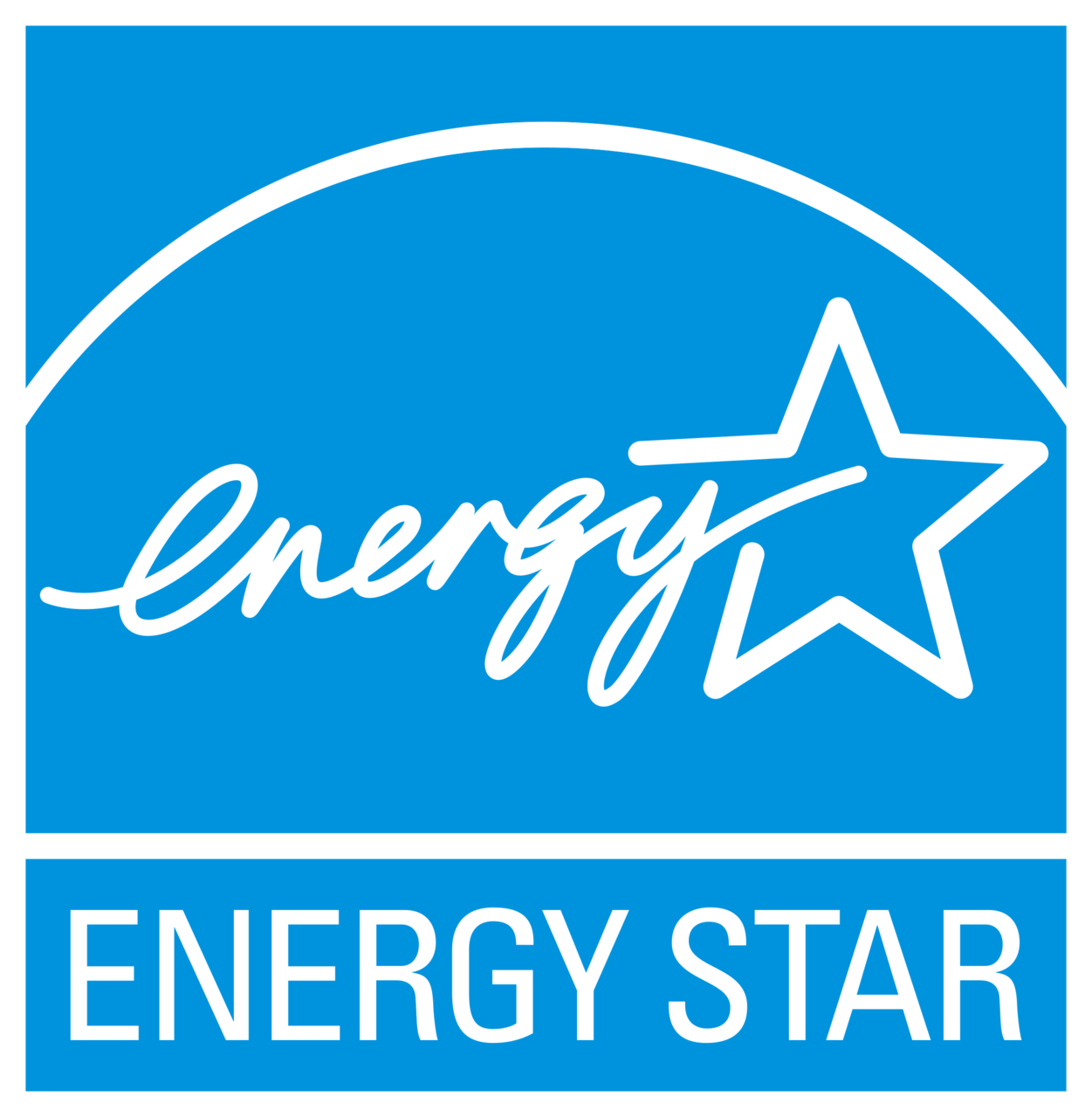
If you’re ready to upgrade or swap out appliances in your home, consider searching for Energy Star certified appliances. From washers/dryers to refrigerators, dishwashers, air conditioners, electric cooking products, heat pumps, and more, there
are plenty of options for appliances that have Energy Star certifications.
This certification is administered by the U.S. Environmental Protection Agency (EPA) and is a label given to products that meet required energy efficiency specifications. It is an easy way for us as consumers to choose options that use less energy
and water, providing savings on our utility bills and promoting healthier environments. Having energy-efficient appliances is also a great selling point if and when you choose to sell your house.
Consider Water-saving Fixtures
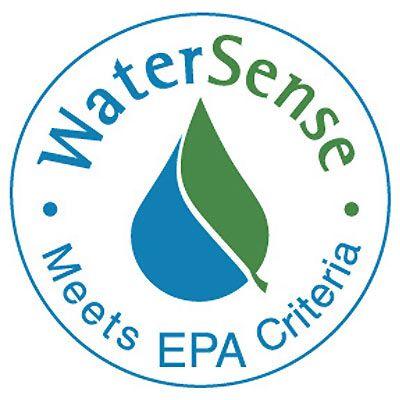
In addition to Energy Star appliances that use less water, you can also choose fixtures like faucets, showerheads, and toilets that have the WaterSense label to show that they save water. Similarly to Energy Star, WaterSense is a government certification
that shows a fixture meets EPA criteria for more efficient water usage. Faucets, showerheads, and toilets with WaterSense labels use 20% less water than non-WaterSense counterparts. While new fixtures aren’t cheap, this upgrade tends to
be a more affordable home upgrade overall and can result in great savings on your water bill.
If you aren’t ready to swap out your faucets entirely, a more affordable option is to install a pressure-reducing valve, which works to regulate the pressure of incoming water through your pipes. Not only does this help with water savings, it
also can help the longevity of your pipes by reducing potential pressure-related damage.
For those who want to go the extra mile with their water savings, consider switching from a traditional shower to a steam shower. Making this switch not only gives your bathroom the feeling of a luxurious spa, but it also only uses 2.5 gallons of
water for a 20-minute shower, compared to 50 gallons for a traditional shower. This one change alone can save thousands of gallons of water per year and some sources say it can increase your home’s value by up to 30%.
Have a Lightbulb Moment
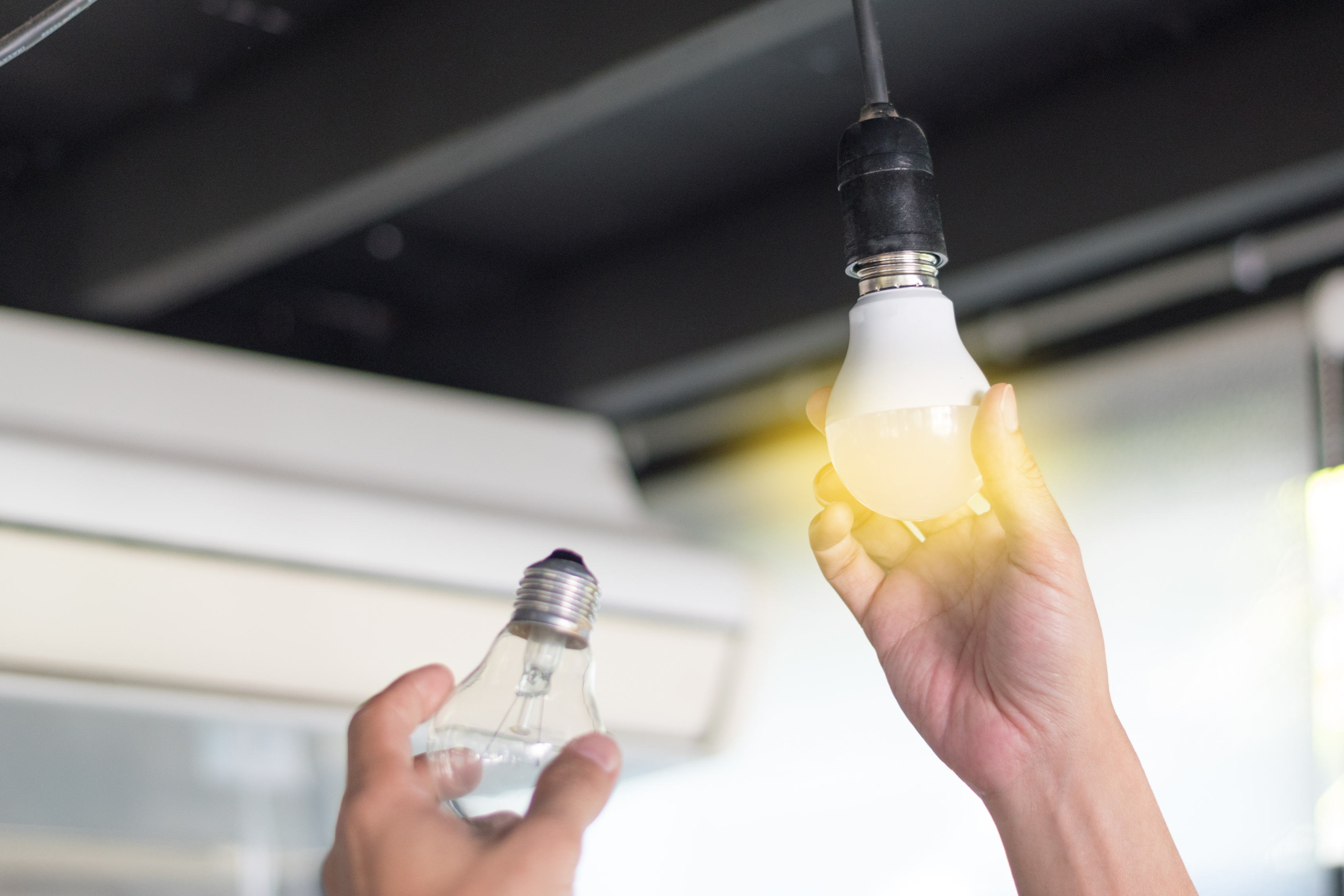
One of the easiest, most affordable home upgrades you can make is to switch out old lightbulbs to LEDs. LEDs last far longer than other lightbulbs and use a fraction of the amount of energy. According to Carbon Switch, the average home could save around $4,000 over 20 years (the lifespan of an LED) by switching all their bulbs to LEDs.
Provide Better Charging for Your Current (or Future) EV
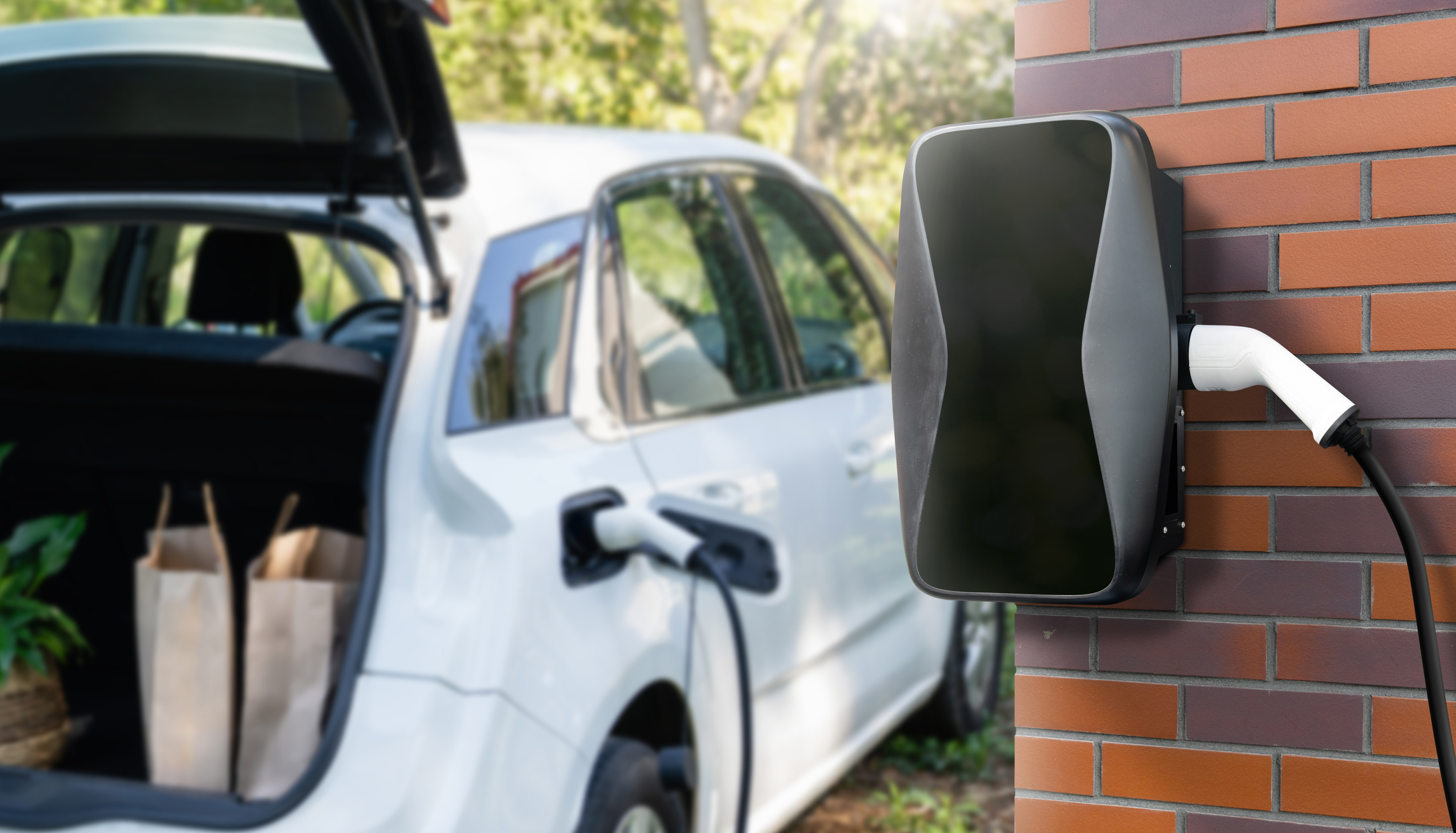
If you have an electric vehicle (EV) or are considering purchasing one, also consider installing an EV charger in your driveway or garage to more effectively charge your vehicle. Installing a charger is often a fairly simple process done by an electrician
that eliminates issues with extremely slow charging when using a traditional plug at home or having to pay higher rates to charge your EV at a charging station. Many times, tax rebates are available on EV charger installations. At Self-Help, our
EV loans include the cost of installing a home charger in the loan, which makes owning
an EV more approachable and accessible.
Take it Outside
If you have the privilege of owning outdoor space, like a yard, consider sustainable landscaping to help reduce watering and maintenance costs. This includes:
- Native plants – When you plant native plant species in your yard, these plants use less water since they are meant to do well in your natural climate zone. They also create an appropriate environment to support local wildlife,
like beneficial insects, small mammals, and reptiles.
- Drip irrigation – Using drip irrigation is an extremely water-efficient way to maintain your plants. These systems deliver water directly to roots, minimizing evaporation and decreasing the growth of weeds and fungal diseases.
- Rain barrel systems – If you get a lot of rain or seasons with heavy rain, consider harvesting your rainwater with barrels. This water can then be used to maintain your yard/garden during drier periods.
- Grass alternatives – Traditional grass lawns require a high amount of water to maintain. Consider opting for groundcover that requires much less maintenance, like clover, creeping thyme, or native grasses and wildflowers.
Removing the Barrier to Energy Savings
There are plenty of options that range in price, time, and effort to implement that can all make a big difference in the efficiency, cost savings, and value of your home.
At Self-Help, we believe that everyone should have access to the benefits that come with environmentally friendly home improvements. This is why we offer plenty of options for financing, including energy saver, solar, and
EV loans that make it easier for you to make the home upgrades that will allow you to take advantage of long-term savings and creating healthier and safer environments for your family and community.